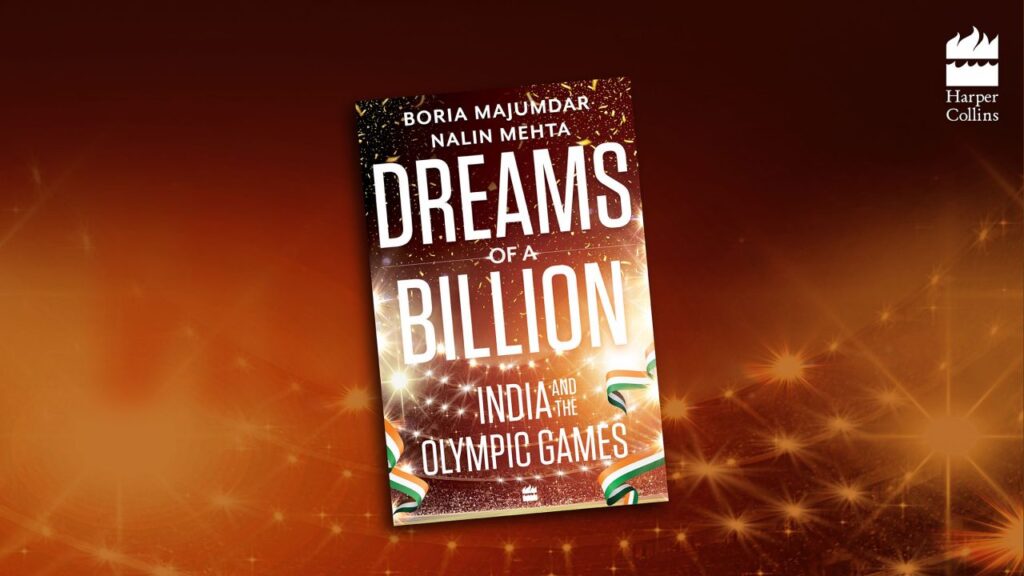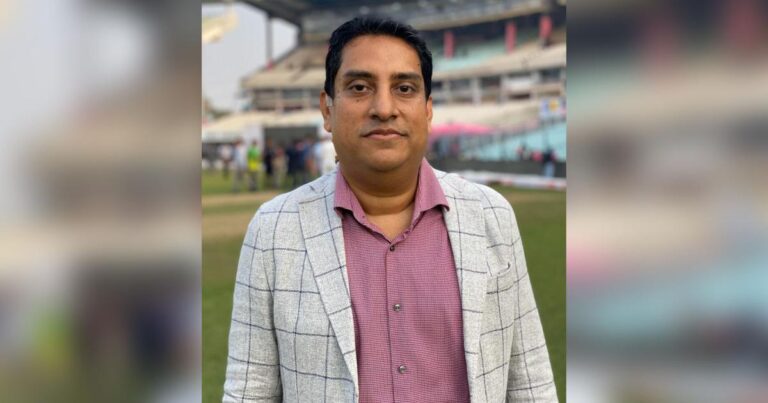An interview with Boria Majumdar, co-author, with Nalin Mehta, of ‘Dreams of a Billion: India and the Olympic Games’.
Can Tokyo 2020 be the game changer for Indian Olympic sport? Can the country shed the disappointment of Rio 2016 and become a multi-sport nation? How are the Indian athletes shaping up for the Olympics? Do they finally have enough support from government and other partners? What was it like in the past, when India won six consecutive gold medals in field hockey between 1928 and 1956 at the Olympics?
Questions, questions. In their new book, Dreams of a Billion: India and the Olympic Games, Boria Majumdar and Nalin Mehta attempt to document India’s Olympic story and provide some answers. Majumdar spoke to Scroll.in about why this project was more challenging than other books, and what he expects from the effort. Excerpts from the interview:
You have said Dreams of a Billion is one of the most difficult projects you have undertaken. Can you talk to us about this?
There is absolutely no doubt that this has been the most difficult book to write. There are two reasons why I am saying this. First, unlike cricket, the literature on Olympic sports in India is still very scarce. There’s only a handful of good books on the subject, and most of these tend to be athletes’ memoirs or biographies. We had to literally create our archive as we went along.
Second, and this is perhaps the most important thing about Dreams of a Billion, it was essential to take readers backstage with our athletes to tell them the real stories. For example, how did shooter Abhinav Bindra deal with his epilepsy? When it start and how did he manage it after leading to Rio?
Or, how did coach P Gopichand manage his two superstars Saina Nehwal and PV Sindhu – how challenging, for instance, was it to train them in the same academy? What actually happened when Saina left Gopi to go and train in Bengaluru? How did he deal with this decision? What were Sindhu’s preparations for Rio like? Did the silver medal change her forever?
Or, do we now have systems in place, or is it still about an ad hoc approach and individual brilliance? Unless we answer these questions, there is no point trying to write India’s Olympic story. While no book can ever be complete and answer all questions, we can honestly claim to have come close and are very happy with what we have been able to produce.
The access to athletes that you enjoy must have helped.
Certainly the access, and also the confidence that one is not out to “expose” anyone or project them inappropriately. Most of the athletes have seen us work for a decade and more, and know that we have always tried to document the story exactly the way it is. We have been critical when we felt the need to be critical, and have never masked our intention. It is about telling the truth – if it is hard so be it.
It takes a lot for Gopi to open up on what happened between him and Saina and how painful it was. And it is also revealing how much he still adores and respects her. It was fascinating to hear how Sindhu became the star she is now, and what has gone on behind the scenes for days and months on end.
I can tell you that I was aware of Abhinav’s issues with epilepsy a year or more before Rio. However, he had made me promise that I would not write about it till the Olympics. We were at a programme together in 2015 when all of a sudden his hand started to shake. While he was doing all he could to control it, I was stunned to be honest. Here was our biggest Olympic hope in shooting and he wasn’t able to control his own movements when shooting is all about stillness! When I asked him, he opened up in detail but requested me to keep it to myself till the Olympics was over. I kept my promise.
You have also documented the stories of Devendra Jhajharia and Deepa Malik in detail. What was the idea behind including Olympic and Paralympic stories in the same book?
It was deliberate, and it was about inclusiveness. Each one of these stars is a celebrated athlete, it’s just that some of them are differently abled. Deepa and Devendra will forever remain two of India’s biggest role models. Frankly, each of them is a bigger inspiration than anyone else.
For someone who had been a biker and an extremely active woman to prepared to lead the life of a paralytic, knowing she would never walk again, is a story of exemplary courage. Just stand up and walk once while you read this. See how naturally it comes to you and me. To think she was told she would never walk again and she had to prepare herself for a life in a wheelchair and to then get on with it! Whoa!
Add to this the fact that she then started swimming and crossed the Yamuna, and thereafter won the silver medal in Rio in the shot put. This is something ordinary men and women can never think of. The same is true of Devendra. To break one’s own world record at a gap of 12 years and win two Paralympic golds is the true hallmark of a star. Nalin and I feel they aren’t celebrated enough in India, and it is our way of giving them their due.
So what do you think of Tokyo? How prepared is India and can the country move on from the Rio debacle?
Yes we can. I have to say that we are very well prepared for Tokyo. Having said that I will also tell you that preparations don’t guarantee medals. This is not the World Cup which takes place four times a year in shooting. Nor is it the world championship which comes every year in badminton or wrestling or boxing. It is the Olympics, which comes every four years. I have seen the greatest athletes suffer a meltdown at the Olympic level.
But while all of this is true, I am very optimistic about India’s chances in Tokyo. This is because we finally have systems and structures in place. It is not simply about a Bindra or a Narang anymore, there is now a legion of shooters who are all equally good on their day. We are competing in 21 shooting events in Tokyo, and if we are lucky (never should you underestimate the role of luck in sport) we can win as many as 7-8 medals in shooting. We are well and truly that good.
I expect India to win medals in wrestling, boxing, badminton, and also feel we have an outside chance in men’s hockey. I should also tell you that while we won 4 medals at the Paralympics in Rio, I will be very surprised if we win fewer than 15 in Tokyo. I just hope our media, who will be there in big numbers in Tokyo for the Olympics, will also be there for the Para games to celebrate our athletes.
Whom is this book for, the fan or the serious student of sports?
I’m glad you asked me this question. We have consciously written this for every Indian sports fan. We consider ourselves storytellers and believe that each of these stories needed to be told. The style is anecdotal and the narrative will flow once you pick up the book. The idea is to make these athletes household names and not keep their stories confined to the experts.
Deepa for example isn’t just an athlete. She is a symbol of empowerment and a story of sensitisation. Devendra is a story of self-belief and courage. Abhinav is someone who embodies the philosophy that nothing is impossible. And Gopi doesn’t leave anything to chance. They should all be part of school textbooks, for each of them are national icons no less than any politician or super-achiever from any other field. Saurabh and Manu and Bajrang and Amit and of course Mary show what India is all about.
Dreams of a Billion is also a story of India. And for once it isn’t about negativity or divisiveness. It is about positivity and success and human pursuits that we can all be proud of.



